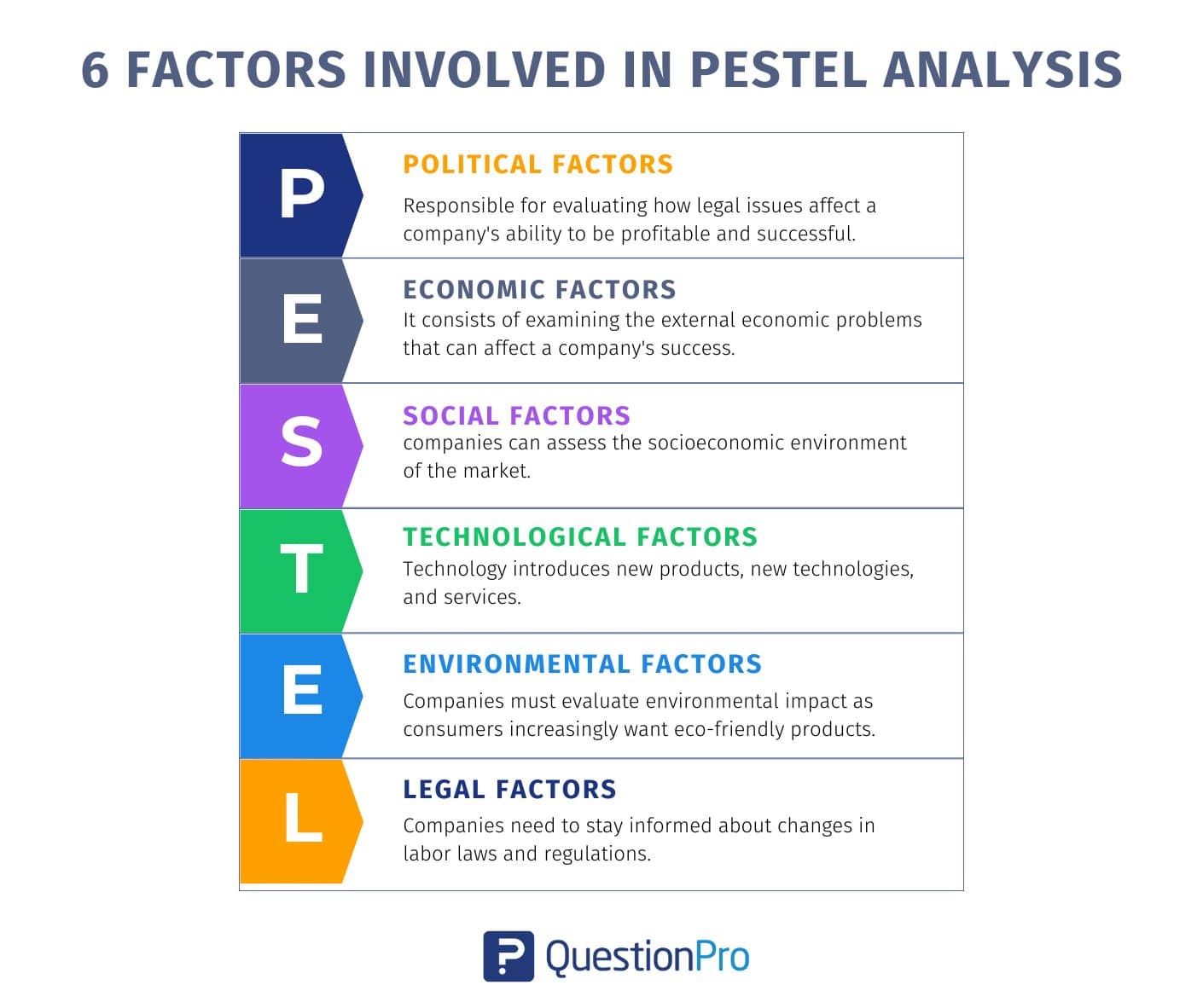Factors Involved in PESTEL Analysis
Factors Involved in PESTEL Analysis
As we mentioned before, PESTEL is the acronym for Political, Economic, Social, Technological, Legal, and Environment. Each of these factors can impact your organization at any time, making it essential to conduct analyses that help you anticipate potential threats and make better decisions. Below, we explain each of these factors in detail to guide you through conducting a thorough analysis.

Political Factors
Government regulations and legal issues affect a company’s ability to be profitable and successful. The PEST analysis is responsible for evaluating how this can happen.
Topics to be considered include tax guidelines, copyright and intellectual property law enforcement, political stability, trade regulations, social and environmental analysis policy, labor laws, and safety regulations.
Companies should also consider their local and federal power structure and discuss how anticipated changes in power might affect their business.
Economic Factors
It consists of examining the external economic problems that can affect a company’s success. This factor evaluates different aspects such as interest rates, the change in inflation, unemployment, the gross domestic product, and credit availability.
Social Factors
With the social factor, companies can assess the socioeconomic environment of the market, which allows them to understand how the needs of consumers are formed and what motivates them to make a purchase.
Some aspects that should be evaluated under this aspect include population growth rates, age distribution, attitudes toward work, and labor market trends.
Technological Factors
Technology is essential in business as it can affect them negatively or positively. With the introduction of new products, new technologies, and services, a certain market may find it difficult to adapt, so it is important to evaluate it from all angles.
Specific items to be analyzed include government spending on technology research, current technology’s life cycle, the Internet’s role, and the impact of potential information technology.
Environmental Factors
Companies must evaluate their environmental impact and sustainability practices, as consumers are increasingly prioritizing eco-friendly products. Macro environmental factors include assessing carbon footprints, waste management, and resource conservation strategies, which can influence brand reputation and customer loyalty.
Legal Factors
Companies need to stay informed about changes in labor laws and regulations, including minimum wage laws, workplace safety standards, and employee rights. Non-compliance can lead to legal penalties and affect employee morale.